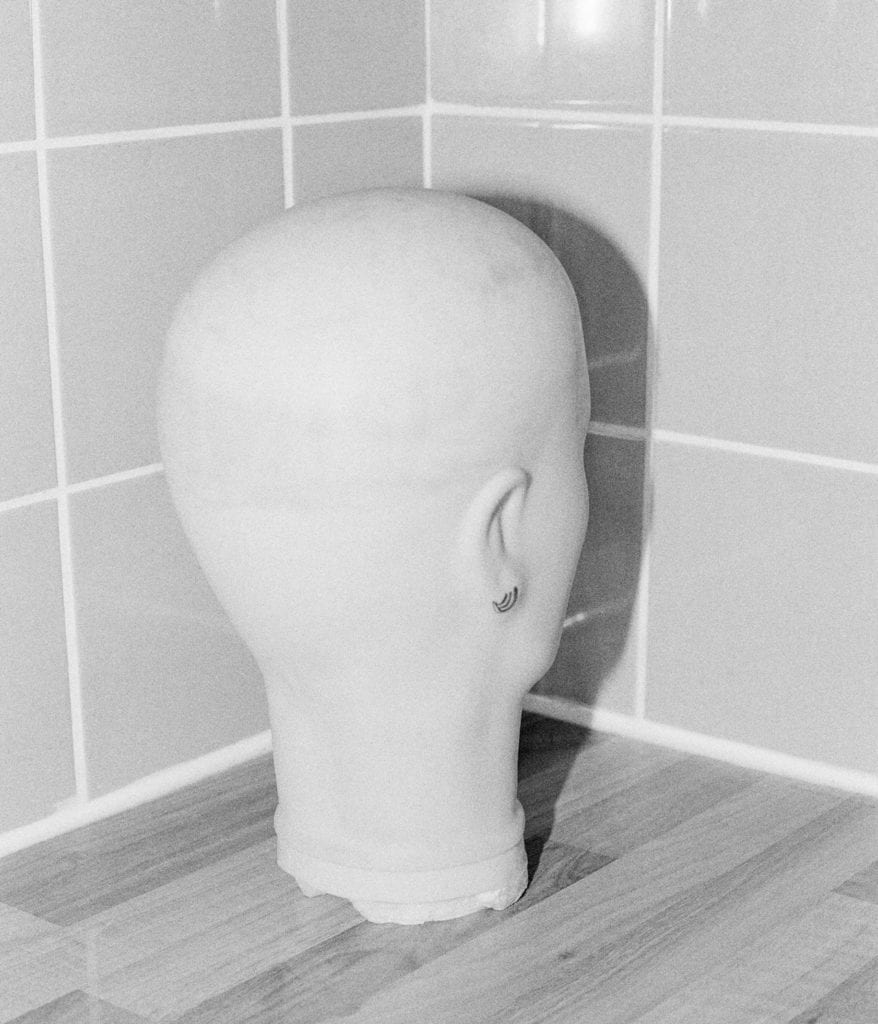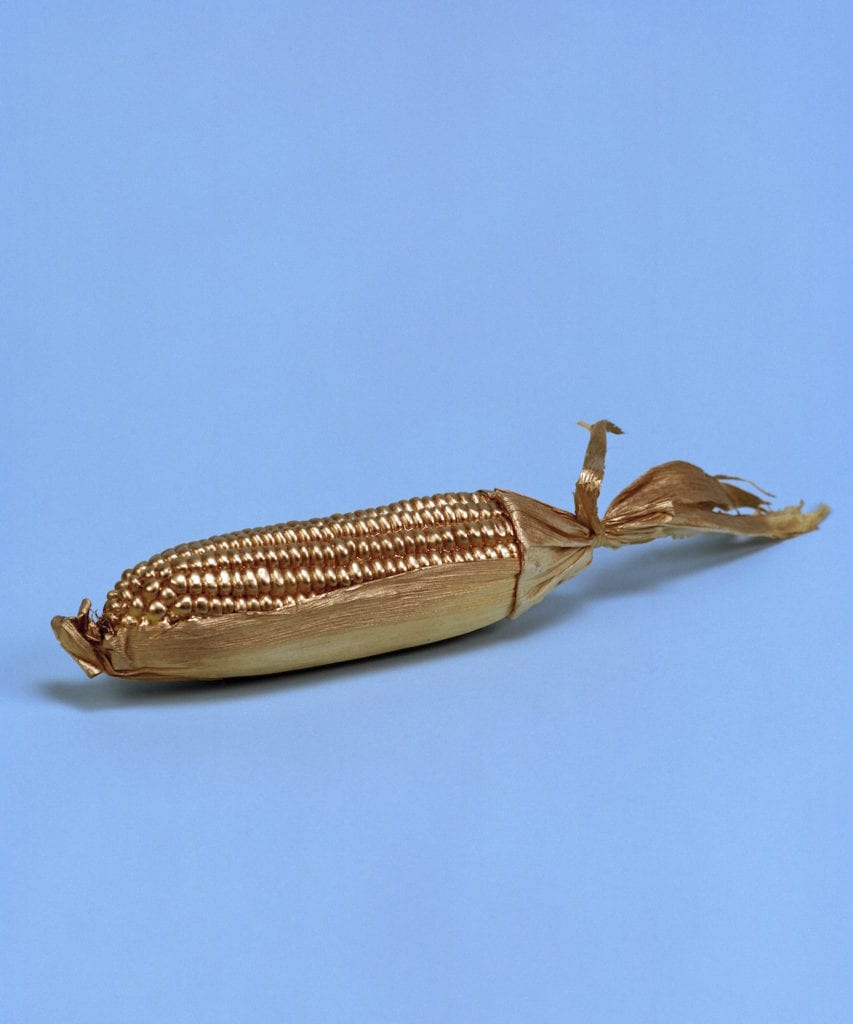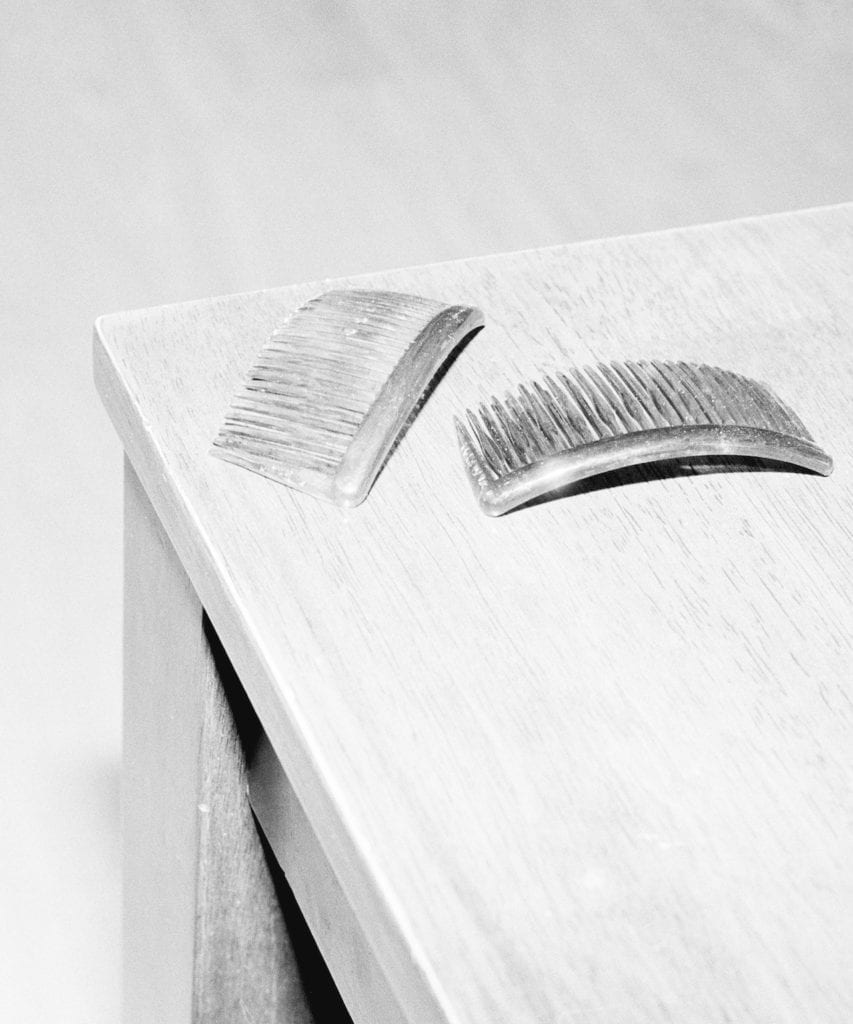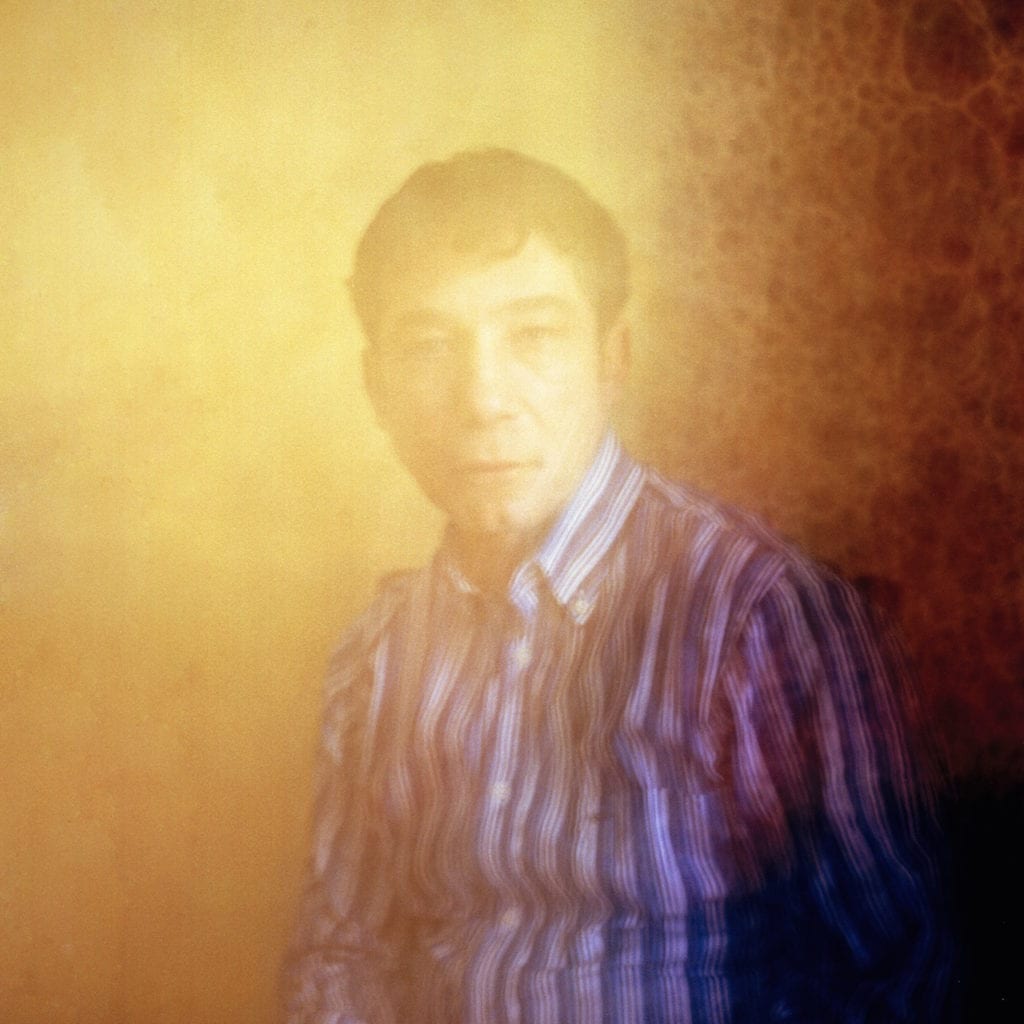When Veronica Viacava moved to London, straight out of high school in Milan, she had never studied photography. But she had developed an interest in the concept of the photographic image, beyond the physicality of manually taking pictures, and seeking independence from her family, who didn’t approve of her desire to study the arts, enrolled at the University of Middlesex.
Viacava has just graduated, and her work has been deeply personal throughout. When she was 17, her mother passed away, which led to intense musings on old family photo albums. By the end of her second year at Middlesex, she had begun to think about the materialisation of memory and “the idea of photography turning the past into an object”, she says. “So that you can look through it.”
This idea formed the basis of her project Palinopsia, in which she took photographs of objects that had belonged to her mother, and that were symbolic of moments they had spent together. A shot of a mannequin head represents the day her mother decided to shave her hair, which had begun to fall out after chemotherapy.

From the series Palinopsia © Veronica Viacava
Viacava began work on the series in November 2016 and, a few months later, her father died. “The project changed completely,” says Viacava. “It wasn’t just about the incongruence between memory and photography, but also about the mourning process and what it is.”
Throughout the process, she was also influenced by Freudian theory of emotional development. “We are so attached to photo albums and pictures when someone passes away,” she says. “It’s because of our need to put our love somewhere else and we attach ourselves to their objects and their remains. I think I’ve done the same thing but with my own pictures.”
Now she has graduated, Viacava hopes to move on, exploring the manipulation of narratives and the materiality of the image in the digital age. But, she adds that she works “really, really slowly”. “I overthink things a lot and then produce one picture, and then do it again and again. My work is very conceptual, at least for now. It’s just the idea of photography that gets me a lot.”
veronicaviacava.com This article was first published in the October issue of BJP, available via www.thebjpshop.com

From the series Palinopsia © Veronica Viacava 
From the series Palinopsia © Veronica Viacava 
From the series Palinopsia © Veronica Viacava
Viacava has just graduated, and her work has been deeply personal throughout. When she was 17, her mother passed away, which led to intense musings on old family photo albums. By the end of her second year at Middlesex, she had begun to think about the materialisation of memory and “the idea of photography turning the past into an object”, she says. “So that you can look through it.”
This idea formed the basis of her project Palinopsia, in which she took photographs of objects that had belonged to her mother, and that were symbolic of moments they had spent together. A shot of a mannequin head represents the day her mother decided to shave her hair, which had begun to fall out after chemotherapy.

Viacava began work on the series in November 2016 and, a few months later, her father died. “The project changed completely,” says Viacava. “It wasn’t just about the incongruence between memory and photography, but also about the mourning process and what it is.”
Throughout the process, she was also influenced by Freudian theory of emotional development. “We are so attached to photo albums and pictures when someone passes away,” she says. “It’s because of our need to put our love somewhere else and we attach ourselves to their objects and their remains. I think I’ve done the same thing but with my own pictures.”
Now she has graduated, Viacava hopes to move on, exploring the manipulation of narratives and the materiality of the image in the digital age. But, she adds that she works “really, really slowly”. “I overthink things a lot and then produce one picture, and then do it again and again. My work is very conceptual, at least for now. It’s just the idea of photography that gets me a lot.”
veronicaviacava.com This article was first published in the October issue of BJP, available via www.thebjpshop.com




